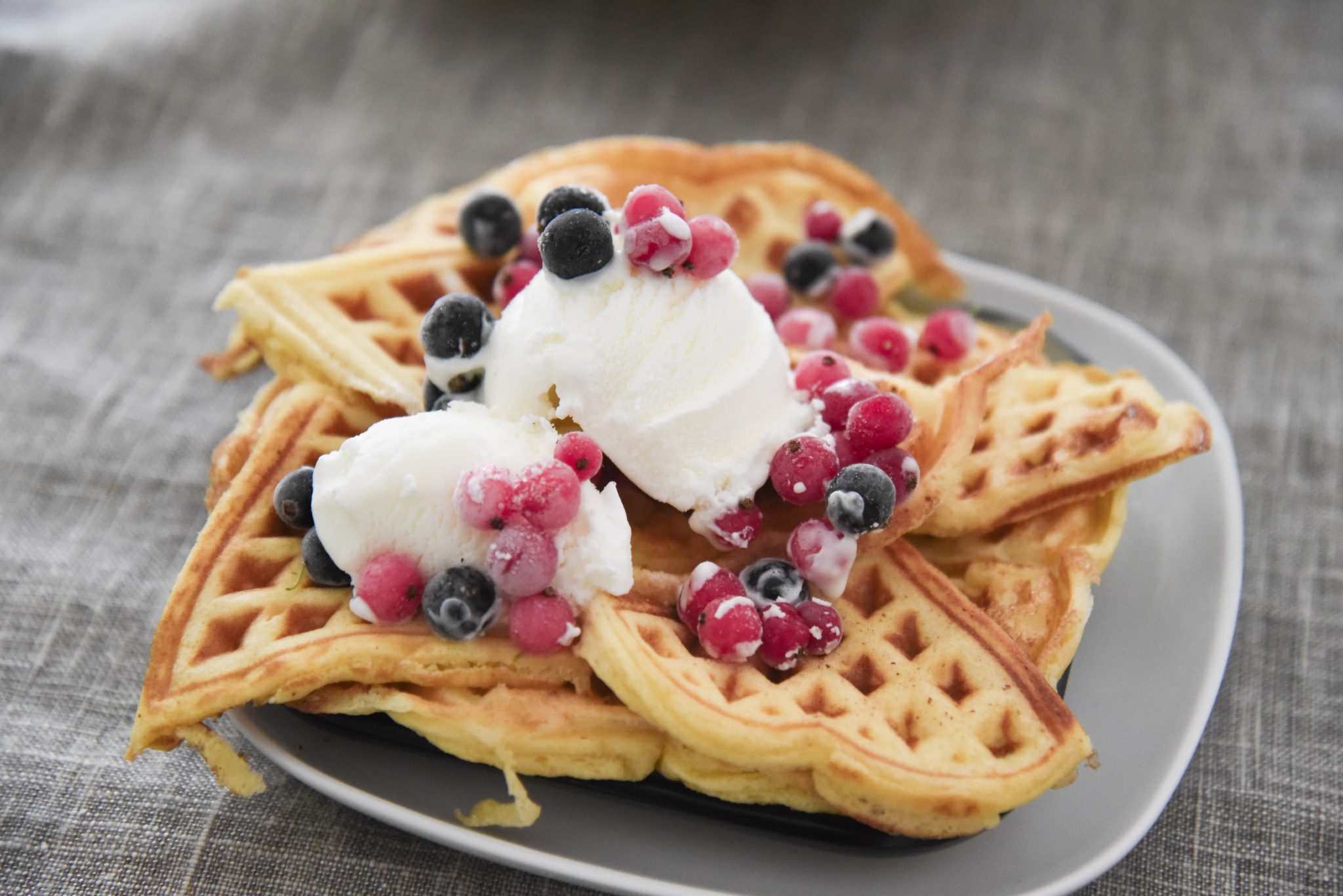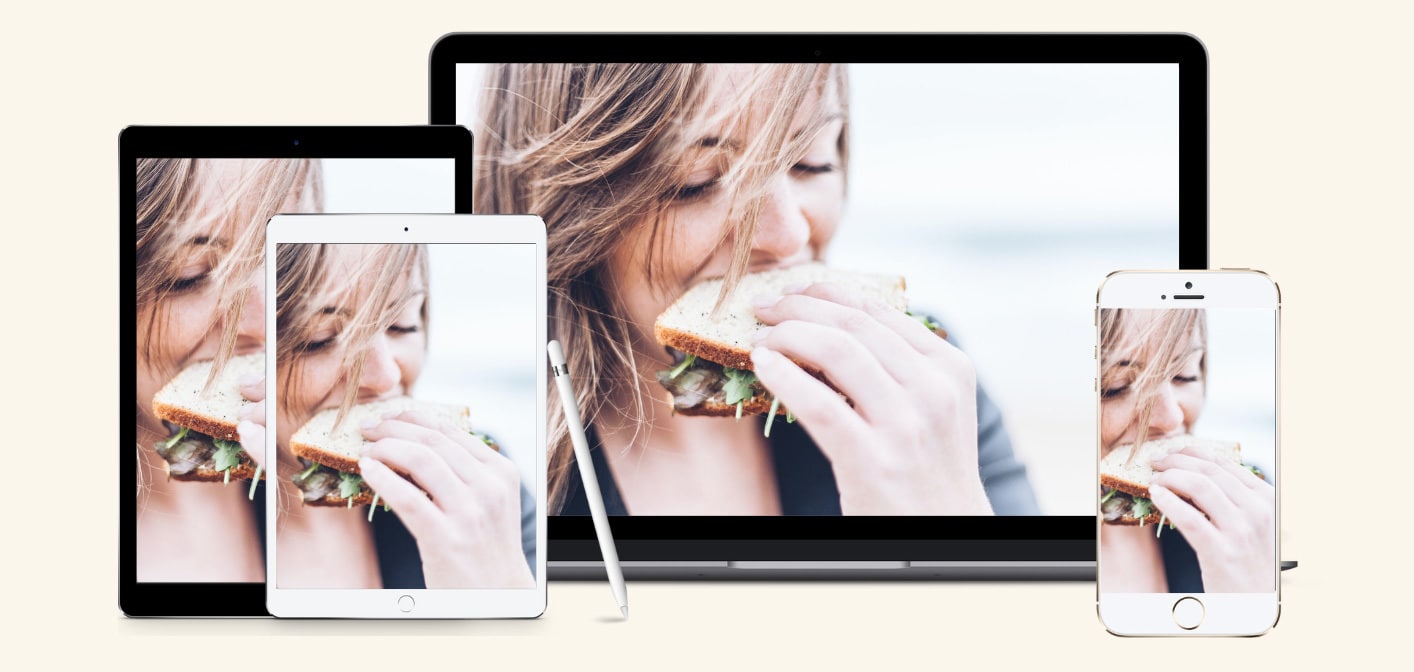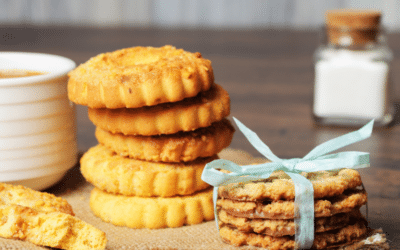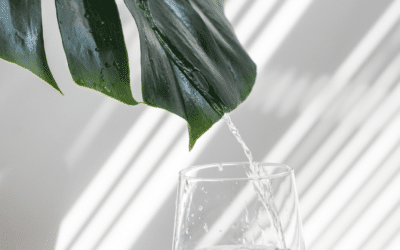This is the smell of warmth and love: Fresh waffles topped with strawberries and sugar, eaten from the high-top chair at the bar in the kitchen of my grandmother’s house, topped off with a heaping pile of whipped cream. A lot of the memories we hold are centred around food, yet so much of our culture is bent on enjoying as little of it as possible, creating food guilt. This is a concept we should explore further.
Food holds a ton of significance in our lives, both nutritionally and culturally. Yet, we tend to label foods as being a “guilty pleasure” or simply good or bad. Here’s a secret that the diet industry doesn’t want us to know: Food isn’t something that can hold a moral value. Our right to enjoy and savour food is equivalent to our right to breathe.
When one is released from the chains of chronic dieting, food rules go out the window.
Without food rules a few things happen:
1) Food becomes neutral. No more “good” or “bad.
2) The binge-restrict cycle comes to a halt. Food restriction or the idea of restriction nearly always precedes binge-like behaviours.
3) Freedom. Without food rules, it becomes much easier to tune into your body and figure out what it is you really need in that moment.
Without food rules, the guilt and fear of “empty” calories becomes a non-issue.
But of course, there’s always some guy in the back that yells, “BUT WHAT ABOUT WHITE BREAD?”
We’ll use this question to break down a couple of myths about white bread as well as [insert any food that you’ve labeled as being bad or “empty” in the past here].
Mmmmmm Pizza…
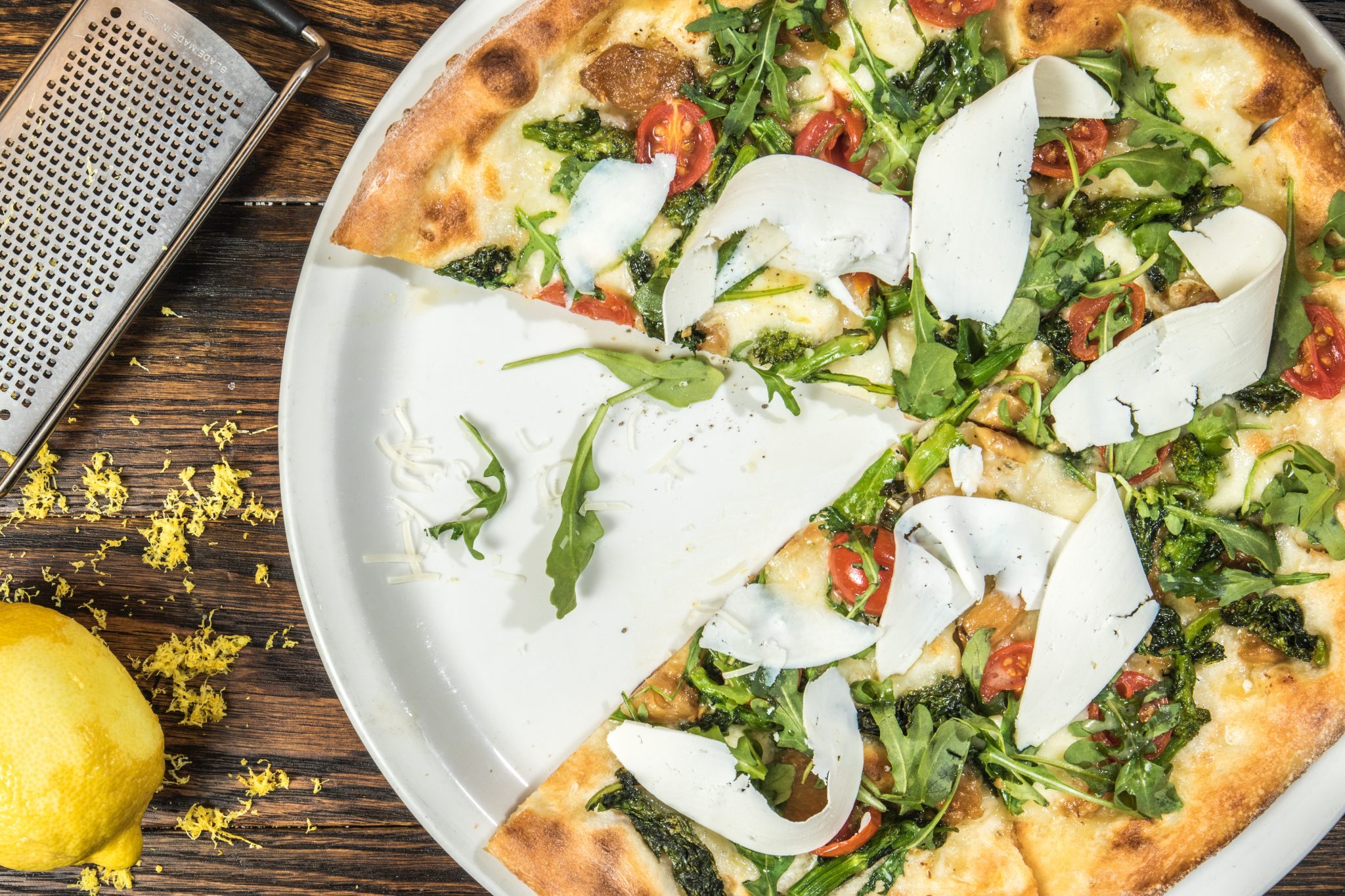
To begin, a slice of white bread contains carbohydrates. Carbohydrates are our brains preferred energy source. Therefore, eating a slice of white bread is literally brain fuel. Next, bread is typically full of extra nutrients added in a process called fortification. Therefore, bread is a good source of various vitamins and minerals that are important to everything from producing and maintaining the cells of our body to the production of cells that carry oxygen to our brain.
But hold up. Let’s rewind a second.
Even if white bread didn’t contain those extra snazzy vitamins and minerals and let’s say for kicks and giggles, that it didn’t have any other nutrients in it (which is impossible but bear with me). It still would be guilt free.
Why is that?
Well, food holds more purpose than nourishment alone.
Think about it, events important to our varying cultures and religions usually have one universal focal point: food. Food is social. Food is religious. Food is comfort after a crap day of work. Food is a memory of cooking Belgian waffles in the kitchen with Grandma and the smell of fresh strawberries soaked in sugar overnight.
Food is so much more than a vessel for calories and vitamins. It is meant to be enjoyed; our survival depends on food being enjoyable.
When it is all said and done, nutrient content doesn’t matter. In the framework of intuitive eating, folks are able to recognise when and what to eat.
As a personal example, if I have a few days that I don’t get much fibre, I notice I don’t feel so hot. So, I work on including extra veggies and whole grains when it serves me. I also recognise that if I only eat salads for lunch all week, I crave and seek out foods that are more nutrient dense. If I eat too much ice cream, I feel sick. But with intuitive eating, I know I can buy more ice-cream whenever I want, so the urge to eat past what’s comfortable gets dampened.
To help, here are some diagrams that demonstrate what a day with intuitive eating looks like.
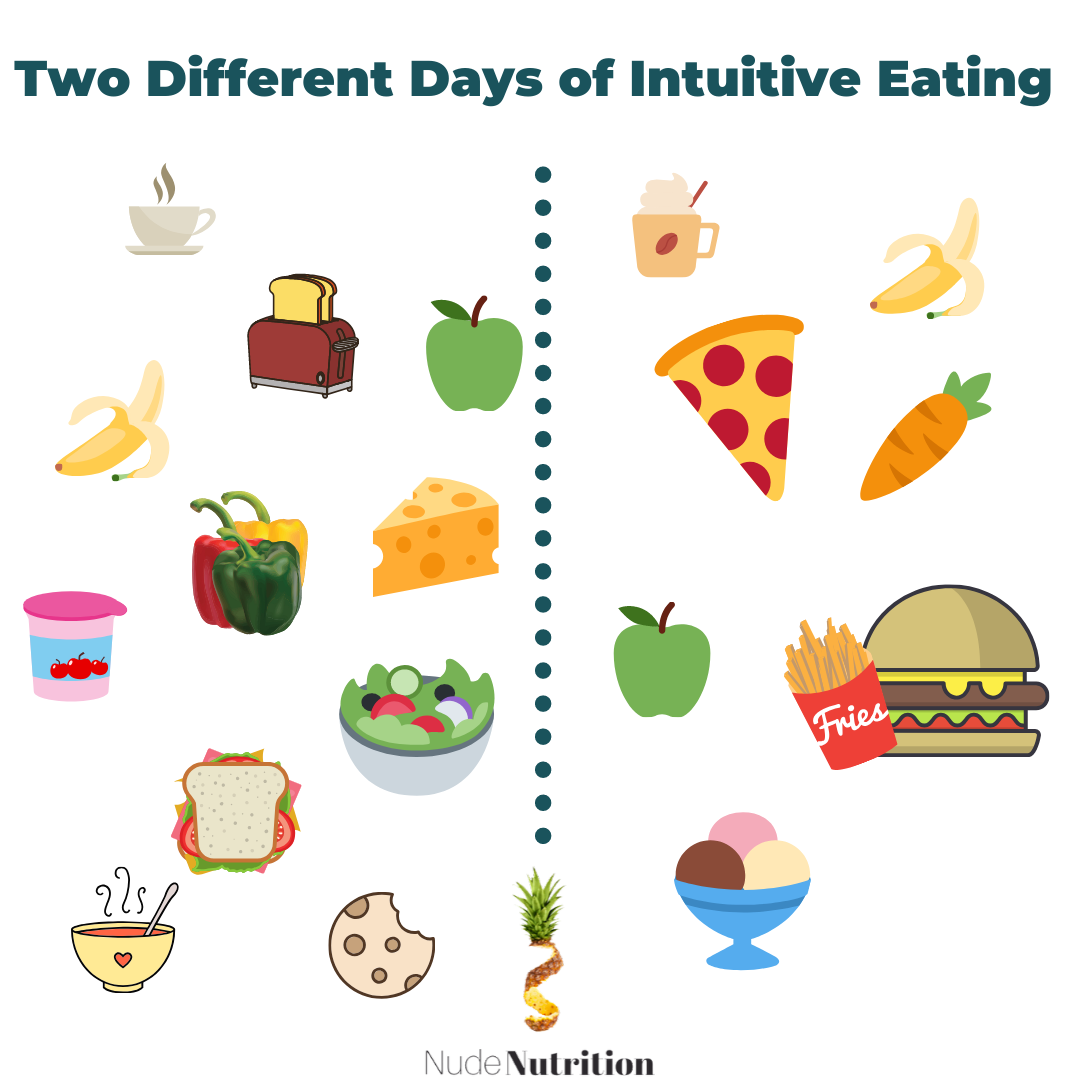
Finally, for some additional clarity, here is a list of actual “bad” foods and “good” foods:
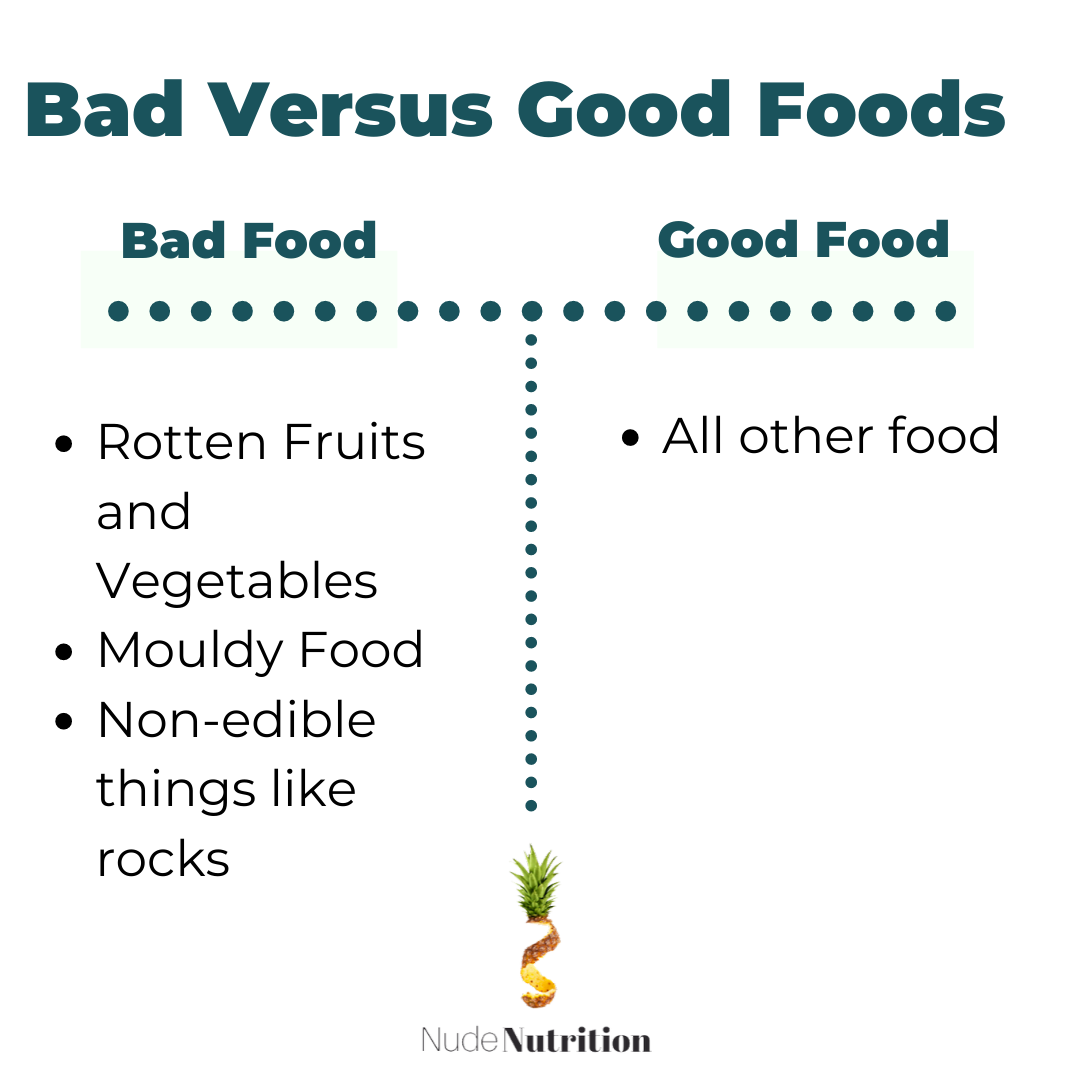
Without good or bad food, all food becomes guilt free. When something is a necessity for life, it is not guilty. Our urge and need to eat is a survival mechanism. There is no need to fight against our biology. If you are someone who struggles to know what to eat check out a few of these articles:
Intuitive Eating Tips for those Starting Out

